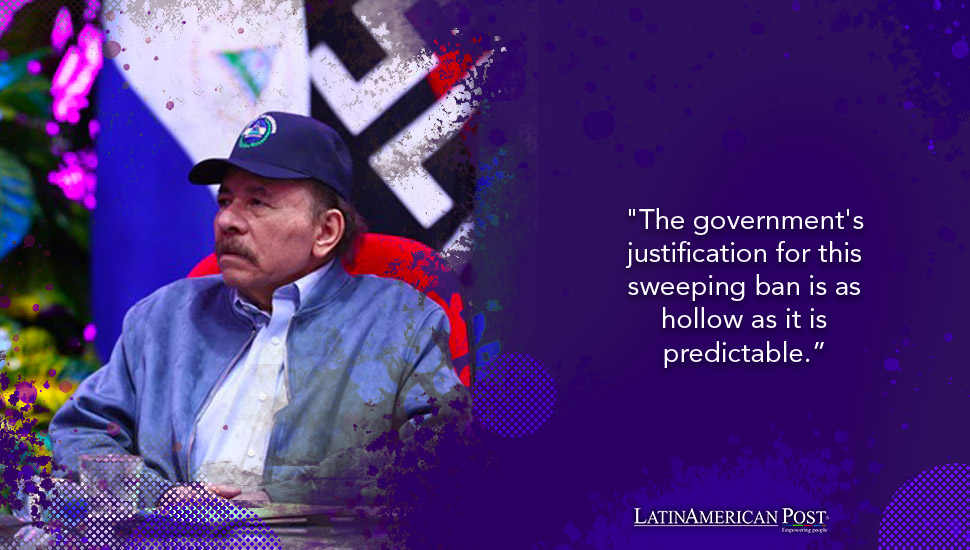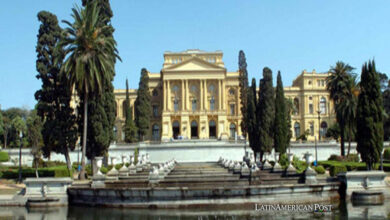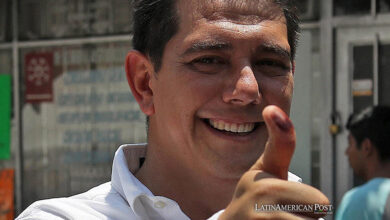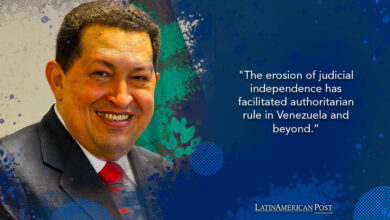Nicaragua’s NGO Ban: A Clear Assault on Democracy and Civil Liberties

The decision by Nicaragua’s government to outlaw 1,500 non-governmental organizations (NGOs) is yet another alarming step in President Daniel Ortega’s ongoing crackdown on civil liberties. This bold move not only silences dissent but also underscores the authoritarian nature of Ortega’s regime, pushing Nicaragua further into a state of repression.
Nicaragua’s government, under President Daniel Ortega’s iron-fisted rule, has once again demonstrated its disdain for democracy by outlawing 1,500 non-governmental organizations. This latest act of repression is part of a broader strategy to eliminate any semblance of civil society that could challenge Ortega’s increasingly autocratic rule. With the closure of these NGOs, the Nicaraguan government has made it clear that any organization perceived as hostile or even mildly critical of the regime will not be tolerated.
The government’s justification for this sweeping ban is as hollow as it is predictable. According to the Interior Ministry, the targeted organizations failed to comply with financial reporting obligations, including disclosing donations. However, this pretext is a thinly veiled attempt to legitimize a blatant attack on civil society. The reality is that these organizations have been shuttered not because of any genuine legal infractions but because they represent a threat to Ortega’s grip on power.
Religious organizations, Catholic Charities, rotary and chess clubs, sports associations, and groups representing small traders, rural communities, and pensioners are affected. The inclusion of such a wide array of organizations in the crackdown reveals the extent of the government’s paranoia and its desire to suppress any form of independent thought or organization. The closure of Catholic radio stations and universities is particularly telling, as it signals an effort to stifle any institution that fosters critical thinking or provides a platform for dissenting voices.
The Erosion of Civil Society
The assault on NGOs is only the latest chapter in Ortega’s long-standing campaign to dismantle Nicaragua’s civil society. Since anti-government protests erupted in 2018, the Nicaraguan president has intensified his crackdown on any group or individual that dares to challenge his authority. The government has shut down more than 5,000 civil society groups, private universities, and media outlets. This systematic dismantling of civil society has left Nicaragua in a state of fear and repression, where any form of dissent is met with swift and brutal consequences.
Ortega’s actions are not just about maintaining power; they are about eliminating any potential threat to his rule, whether small or insignificant. The NGOs that were shut down were not plotting coups or engaging in subversive activities. Many provided essential services to vulnerable communities or promoted cultural and recreational activities. Yet, in Ortega’s eyes, even these benign activities are a threat if they are not under the direct control of the state.
The government’s recent regulation requiring NGOs to work exclusively in “partnership alliances” with state entities clearly indicates the regime’s desire to control every aspect of society. By forcing NGOs to align themselves with the government, Ortega is effectively neutering these organizations, transforming them from independent actors into state tools. This move further erodes the fragile civil society space in Nicaragua and consolidates Ortega’s authoritarian rule.
The Dark Reality Behind the NGO Shutdown
The consequences of the NGO shutdowns extend far beyond the immediate loss of services and support these organizations provided. The confiscation of assets belonging to these groups by the state is a blatant act of theft, stripping these organizations of their resources and further impoverishing the communities they serve. Moreover, the closure of these NGOs leaves a gaping void in Nicaraguan society, as many of these organizations were the last remaining spaces where citizens could come together to discuss, organize, and advocate for their rights.
This crackdown also sends a chilling message to other organizations and individuals in Nicaragua: dissent will not be tolerated, and those who dare to challenge the regime will be silenced, either through legal means or brute force. The expulsion of over 300 politicians, journalists, intellectuals, and activists last year under the accusation of treason underscores the regime’s willingness to use any means necessary to eliminate its opponents.
The ban on Al Jazeera, preventing the network from reporting within Nicaragua, is yet another example of the regime’s determination to control the narrative and suppress any independent journalism that could expose the reality of life under Ortega’s rule. With the media silenced and civil society dismantled, Nicaragua is becoming an information black hole, where the government’s propaganda is the only voice allowed to be heard.
From Revolution to Repression
To understand the current situation in Nicaragua, it is essential to look at the historical context of Ortega’s rise to power and his subsequent descent into authoritarianism. Ortega first emerged as a leader of the Sandinista National Liberation Front (FSLN) in the 1970s, fighting against the U.S.-backed Somoza dictatorship. After the Sandinistas overthrew the Somoza regime in 1979, Ortega became the head of a military government and later the country’s president in 1985.
However, Ortega’s commitment to democracy was short-lived. After losing the presidency in the 1990 election, Ortega spent years consolidating his power within the FSLN and building alliances with key sectors of Nicaraguan society, including the Catholic Church and the business community. By the time he returned to power in 2007, Ortega had transformed the FSLN from a revolutionary movement into a political machine dedicated to maintaining his rule.
Over the years, Ortega has systematically dismantled the country’s democratic institutions, quashed presidential term limits, and seized control of all branches of the state. His regime has become increasingly authoritarian, using the judiciary, the police, and the military to suppress opposition and maintain power. The recent crackdown on NGOs is just the latest in a long line of moves designed to eliminate any threat to Ortega’s rule and cement his control over Nicaragua.
The International Response
The international community has largely condemned Ortega’s actions, with the United States and the European Union imposing sanctions on his regime for human rights abuses. Last month, a group of United Nations experts issued a scathing report, accusing the Nicaraguan government of “systematic and widespread abuses of international human rights law.” The Inter-American Commission on Human Rights has also called for an end to the repression in Nicaragua, highlighting the persecution of religious groups, arbitrary detentions, and the dire conditions faced by political prisoners.
Despite these condemnations, there has been little tangible action from the international community to hold Ortega accountable or to support the Nicaraguan people in their struggle for democracy. The sanctions imposed by the U.S. and the EU have had limited impact, and Ortega continues to tighten his grip on power with little regard for the consequences.
The lack of a coordinated and robust international response to the situation in Nicaragua is not only a failure of diplomacy but also a betrayal of the Nicaraguan people, who are being left to face the full force of an increasingly repressive regime on their own. The international community must do more than issue statements of condemnation; it must take concrete steps to support civil society in Nicaragua and hold Ortega accountable for his actions.
As Ortega continues his assault on civil liberties and democratic institutions, the future of Nicaragua looks increasingly bleak. The shutdown of NGOs, the suppression of the media, and the expulsion of dissidents are all part of a broader strategy to turn Nicaragua into a one-party state where dissent is crushed, and the rule of law is nothing more than a tool of repression.
Also read: Nicaragua’s New Council Targets Organized Crime Amid Controversy
The Nicaraguan people deserve better. They deserve a government that respects their rights, upholds the rule of law, and allows for a vibrant civil society. The international community must stand with the people of Nicaragua in their fight for democracy and take meaningful action to support their struggle. Anything less would be a betrayal of the values of democracy and human rights that the world claims to uphold.





